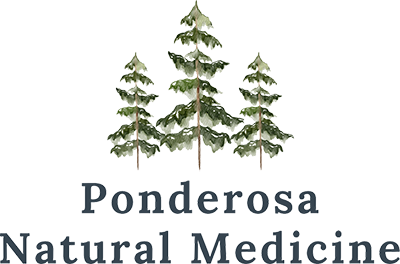Do you or someone that you know suffer from Anxiety or Depression? The answer is probably yes. In 2006, the CDC estimated 1 in 20 adults were suffering from depression and up to 45% of adults were suffering from undetermined psychological distress. This number is huge!
There have been numerous studies correlating nutrition status to depression. The formation of neurotransmitters require many vitamins and minerals to be formed. See the attached image that highlights these vitamins and minerals. Many people due to diet, digestion, and genetics do not get adequate amounts of these substances.
Your naturopathic doctor can help by studying your diet and preforming lab tests to assess your nutritional status. In addition, they may run tests to determine genetic factors such as the MTHFR gene that are making it harder for you to utilize nutrients such as B vitamins. They can also work on optimizing your digestion, and supplementing with high quality nutrients when needed.
The following information is from Spectracell on nutrient deficiencies and depression:
Below is a list of various nutrients that affect a person affected with depression.
- Chromium – Elevates serotonin (feel-good neurotransmitter) levels in the brain; May be particularly effective on eating symptoms of depression such as carbohydrate craving and increased appetite, due to its effect on blood sugar regulation.
- Magnesium – Deficiency damages NMDA (N-methyl-D-aspartate) receptors in the brain, which regulate mood; Well-documented anti-depressant effects.
- Vitamin B12 – Depression may be a manifestation of B12 deficiency; Repletion of B12 to adequate levels can improve treatment response; B12 deficiency common in psychiatric disorders.
- Vitamin B6 – Cofactor for serotonin and dopamine production (feel good chemicals); Studies indicate that low levels may predispose people to depression.
- Vitamin B2 – Low B2 has been implicated in depression due to its role in methylation reactions in the brain.
- Vitamin D – Clinical trials suggest increasing blood levels of vitamin D, which is actually a hormone precursor, may improve symptoms of depression.
- Carnitine – Increases serotonin and noradrenaline which lift mood; In trials, carnitine alleviates depression with few, if any, side effects.
- Inositol – Influences signaling pathways in the brain; Particularly effective in SSRI(selective serotonin reuptake inhibitor) sensitive disorders.
- Biotin – Part of the B-vitamin complex, biotin deficiency has induced depression in animal and human studies.
- Antioxidants – Oxidative stress in the brain alters neurotransmitter function; Antioxidants protect our brain, which is very sensitive to oxidation; Several antioxidants – Vitamins A, C and E, Lipoic Acid, CoQ10, Glutathione and Cysteine – play a key role in prevention and treatment of depression.
- Serine – Regulates brain chemistry; Involved in NMDA receptor function; Acts as a neurotransmitter; Low levels correlate with severity of depression.
- Zinc – Improves efficacy of antidepressant drugs; Particularly useful for treatment resistant patients; Regulates neurotransmitters.
- Selenium – Integral part of regulatory proteins (selenoproteins) in the brain; Supplementation trials are promising; May alleviate postpartum depression.
http://www.hindawi.com/journals/bmri/2015/521481/
http://www.cdc.gov/mentalhealth/data_stats/nspd.htm
http://info.spectracell.com/bid/82384/SpectraCell-s-Nutritional-Correlation-Chart-on-DEPRESSION

